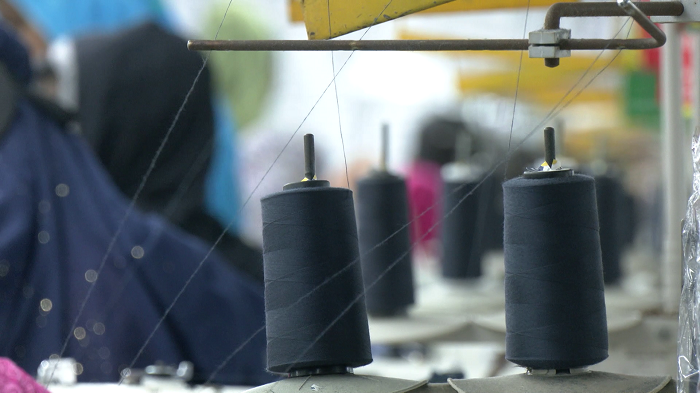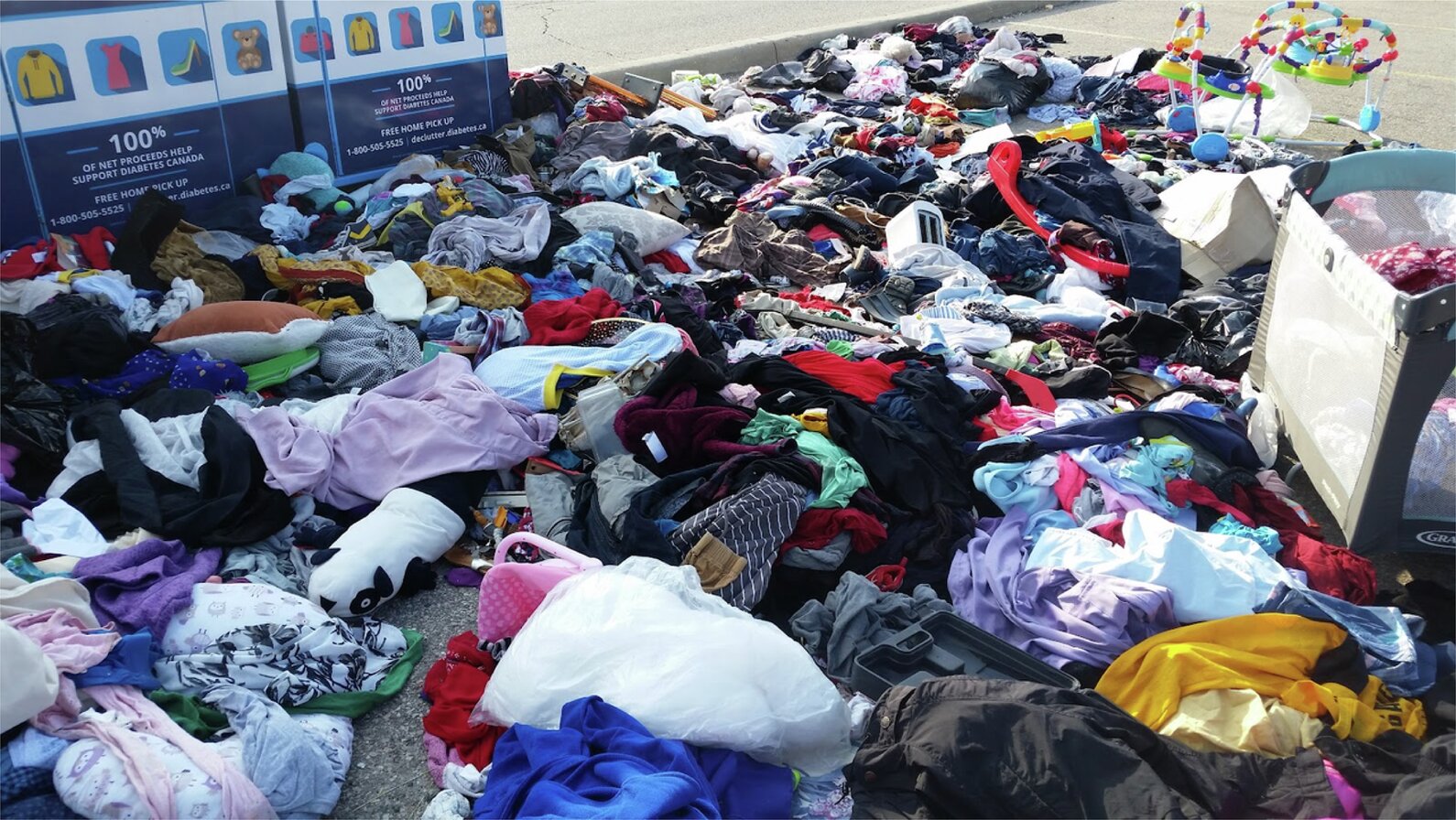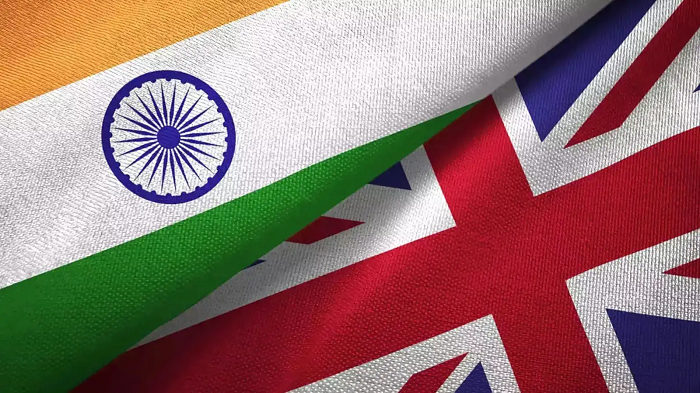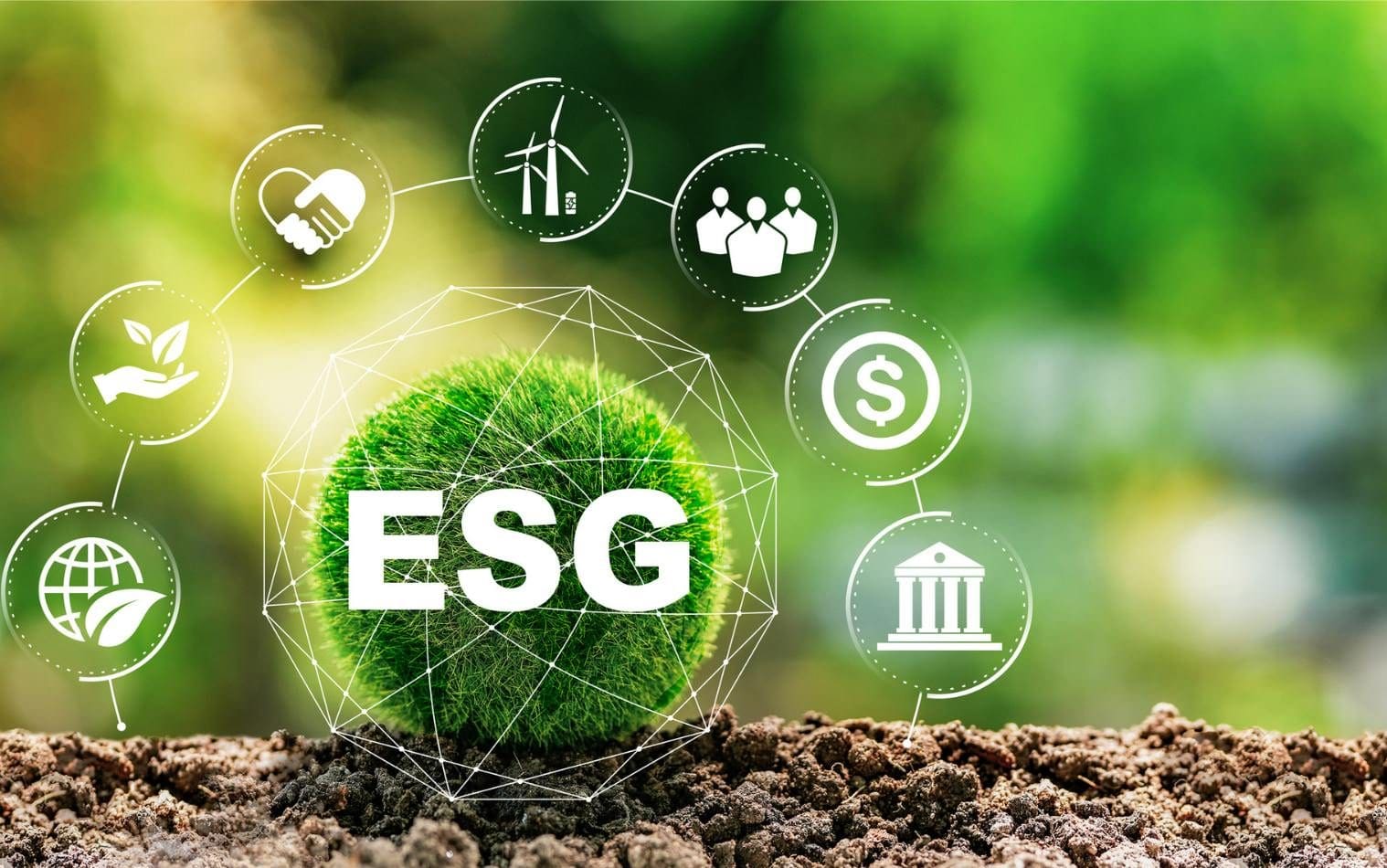Exports of polyester products increased by 197,000 tons Y-o-Y to 1.047 million tons in July’24. However, these declined by 67,000 tons on a M-o-M basis. As per the latest customs data by the CCF Group, from Jan-July’24, total exports of polyester products increased by 802,000 tons Y-o-Y to 7.185 million tons. This reflects a relatively strong performance in polyester exports for the year, although some disparities are evident.
Analysing the data in more detail, exports of all polyester products except filament yarn exhibited year-on-year growth in July, continuing the trend seen in June. However, on a month-on-month basis, most products experienced a decline compared to June.
On a cumulative basis polyester exports rose to 802,000 tons Y-o-Y during Jan-July’24, surpassing the increase seen during the same period last year.
In June and July, exports of both filament yarn and staple fiber experienced significant month-on-month declines. Exports of filament yarn were particularly affected by BIS regulations, and a higher base from the same period last year led to continued negative year-on-year growth. Staple fiber fared slightly better, though it followed a similar
This decline in filament yarn and staple fiber exports during June and July could be attributed to two potential factors: domestic producers of filament yarn and staple fiber may have adjusted their strategies, gradually adopting a price-support approach, which complicated export negotiations; alternatively, a decrease in overseas demand may have led to a corresponding reduction in raw material procurement.

The appointment of Muhammad Yunus as the interim leader of Bangladesh has brought a glimmer of hope to the domestic apparel sector grappling with a series of challenges. With a staggering $46.99 billion in export value at stake in 2023, and the world's second-largest garment exporter, Bangladesh's apparel industry faces a pivotal moment with billions of dollars in business and thousands of jobs hanging in the balance.
Business at stake, billions on the line
The Bangladesh apparel industry generates an estimated $46.13 billion in annual export revenue. Disruptions to production and supply chains could jeopardize a significant portion of this income. Major brands like H&M, Zara, and Gap, who heavily rely on Bangladeshi manufacturing, are closely monitoring the situation.
Table: Bangladesh exports
|
Year |
Export Value (in billion $) |
|
2021 |
35.81 |
|
2022 |
42.61 |
|
2023 |
46.99 |
The disruption in the supply chain has left many current orders in limbo. According to a survey by the Bangladesh Garment Manufacturers and Exporters Association (BGMEA), nearly 30 per cent of orders are facing delays, with some buyers even cancelling their orders altogether. This has put immense pressure on manufacturers who are struggling to meet their commitments.
The critical Christmas season too is fast approaching, and buyers are scrambling to ensure timely deliveries. Many have already begun diversifying their sourcing strategies to mitigate risks. Countries like Vietnam, India, and Cambodia have emerged as major beneficiaries of this shift. For example, Swedish fast-fashion giant H&M, which sources a significant portion of its products from Bangladesh, has reportedly diversified its supply chain to mitigate risks. "We are constantly evaluating our sourcing strategy to ensure a resilient and sustainable supply chain," said a H&M spokesperson.
The search for Bangladesh+1
The current situation has accelerated the trend of Bangladesh+1’ sourcing. Buyers are increasingly seeking to diversify their supply chains beyond Bangladesh to minimize risks associated with political instability and labor unrest. This trend poses a long-term challenge for Bangladesh, which needs to address its structural issues to remain competitive.
Table: Major beneficiaries the uncertainty
|
Country |
Estimated increase in apparel exports (2023) |
|
Vietnam |
15% |
|
India |
10% |
|
Cambodia |
8% |
However, Muhammad Yunus' leadership is being seen by many as a positive development. As Faruque Hassan, President of BGMEA says, "We are confident that under Mr. Yunus's leadership, the industry will overcome its current challenges and emerge stronger." His promises of stability and initiatives aimed at improving worker conditions and strengthening supply chains have been welcomed by buyers.
Emily Chen, Chief Sourcing Officer, Gap Inc. opines, "We are cautiously optimistic about Muhammad Yunus' leadership. His commitment to improving labor standards and ensuring a stable business environment is encouraging. We will continue to monitor the situation closely and work with our partners in Bangladesh to navigate these challenging times." The new government has also taken several initiatives to boost the industry, including providing financial incentives to exporters and improving infrastructure. However, the effectiveness of these measures remains to be seen.
The Bangladesh apparel industry is at a crossroads. While Yunus' appointment and the government's initiatives offer a glimmer of hope, the industry faces significant challenges in the short and long term. The ability of the industry to adapt to the changing global landscape will determine its future success.
The Lenzing Group, a key player in the regenerated cellulose fiber industry, is set for a leadership change. Rohit Aggarwal will take over as CEO on September 1, 2024, following the departure of Stephan Sielaff, who will step down at the end of August by mutual agreement with the Supervisory Board.
Aggarwal brings decades of experience in the textile and chemical industries, with a deep understanding of global markets and strategic development. His extensive experience in Europe, the USA, and Asia positions him well to lead Lenzing through its next phase of growth. Aggarwal is recognized for his expertise in the textile, non-woven, and fiber markets, aligning closely with Lenzing's core business.
Cord Prinzhorn, Chairman of Lenzing’s Supervisory Board, praised Sielaff for his contributions during a challenging period and expressed confidence in Aggarwal’s ability to steer the company forward. Sielaff reflected on his tenure, highlighting the significant improvements made under his leadership.
Aggarwal acknowledged the challenges ahead, emphasizing the importance of continued efforts to drive Lenzing's turnaround and maintain its position as a leader in sustainable textiles. He expressed gratitude for Sielaff’s smooth transition and looks forward to working closely with the Lenzing team to achieve future success.
The Lenzing Group, a key player in the regenerated cellulose fiber industry, is set for a leadership change. Rohit Aggarwal will take over as CEO on September 1, 2024, following the departure of Stephan Sielaff, who will step down at the end of August by mutual agreement with the Supervisory Board.
Aggarwal brings decades of experience in the textile and chemical industries, with a deep understanding of global markets and strategic development. His extensive experience in Europe, the USA, and Asia positions him well to lead Lenzing through its next phase of growth. Aggarwal is recognized for his expertise in the textile, non-woven, and fiber markets, aligning closely with Lenzing's core business.
Cord Prinzhorn, Chairman of Lenzing’s Supervisory Board, praised Sielaff for his contributions during a challenging period and expressed confidence in Aggarwal’s ability to steer the company forward. Sielaff reflected on his tenure, highlighting the significant improvements made under his leadership.
Aggarwal acknowledged the challenges ahead, emphasizing the importance of continued efforts to drive Lenzing's turnaround and maintain its position as a leader in sustainable textiles. He expressed gratitude for Sielaff’s smooth transition and looks forward to working closely with the Lenzing team to achieve future success.
Martin Shankland has stepped down from his position as thecurrent Head-Global Operations, Adidas AG as the brand continues to shrink its executive board.
Having served Adidas for over 27 years, Shankland, resigned from the company’s board on Aug 10, 2024. Part of his responsibilities are being taken over by Harm Ohlmeyer, Chief Financial Officer, Shankland’s resignation reduces Adidas’ executive board to just four member.
Shankland joined Adidas’ executive board in 2019 under the leadership of Kasper Rorsted, former Chief Executive Officer. He appointment followed a series of crisis for the German company including boycotts in China and the implosion of the now canceled Yeezy partnership with the rapper Ye.
However, the company’s performance rebounded in the past year under the leadership of Bjorn Guiden, CEO, who joined the firm in Jan 2023. Guiden has been responsible for reinventing the company’s management team and overseeing the operations of the brand Adidas.
The Source Home & Gift show, happening from September 1-4, 2024, at NEC Birmingham, will showcase exhibitors from new regions, including Peru, South Korea, and Portugal, along with returning pavilions from the Philippines, Egypt, Nepal, China, and India.
Portugal’s Bioneuro design leads the charge with its innovative integration of biology, neuroscience, and design. Their River collection, blending ceramics and iron, is inspired by riverbanks and aims to foster emotional well-being through design. Each piece is crafted to promote tranquillity and introspection.
From South Korea, Ecomass will present eco-friendly kitchenware and household goods made from sustainable materials like sugarcane and recycled plastic, focusing on green management and sustainability.
Peru’s Sumaq Qara, meaning "Beautiful Leather" in Quechua, supports female victims of terrorism and domestic violence. Founded in 2006, they offer products made from natural fibres such as alpaca and merino wool, using ancestral techniques like embroidery and crochet.
Source Home & Gift 2024 is set to be a key event for the retail community, bringing global manufacturers together with leading retailers, brands, and designers to explore responsible and sustainable sourcing.
Australian fashion retailer, Forever New is enhancing its real-time inventory management, omnichannel order fulfillment and digital-to-store engagement by adopting the OneView Unified Commerce platform. This cloud-native platform offers a comprehensive view of orders, transactions, customers, and inventory, making this data readily accessible to store associates.
Naresh Teckchandani, General Manager –IT, Forever New, says, the OneView Unified Commerce Platform will facilitate seamless customer interactions with the brand through its modern, agile in-store tools and technology. The platform’s composable, API-first architecture provides the flexibility and control necessary to support the brand’s global omnichannel strategy as customer behaviors evolve and the company continues to grow.
Forever New operates in 25 markets and has over 480 retail and concession stores worldwide.
The Cotton Made in Africa (CmiA) initiative has joined the steering committee of the Partnership for Cotton, a new multilateral initiative aimed at promoting sustainable cotton production in Africa. The partnership, founded by the World Trade Organization (WTO) and FIFA, brings together key stakeholders in the cotton industry to support economic development in cotton-producing countries.
Tina Stridde, managing director of the Aid by Trade Foundation (AbTF), expressed enthusiasm for the partnership. She said that CmiA, which AbTF oversees, is thrilled to contribute its expertise to this important initiative. CmiA has a long history of working with small-scale farmers in Africa to promote sustainable cotton production. By joining forces with the Partnership for Cotton, CmiA hopes to help create a more equitable and sustainable value chain for African cotton.
The Partnership for Cotton focuses on West Africa's "Cotton 4" countries (Mali, Chad, Burkina Faso, and Benin) and Côte d'Ivoire. The initiative aims to increase business activity in the processing stages of cotton production, creating new opportunities for local economies. CmiA, with its experience in these countries, will play a crucial role in supporting this goal.
The steering committee of the Partnership for Cotton met in Cotonou, Benin, from June 4-6 to discuss progress and next steps. Members visited an industrial estate where African cotton is processed into textiles, highlighting the potential for growth in the sector.
The partnership's collaboration with CmiA is a significant step towards realizing its vision of a sustainable and prosperous cotton industry in Africa. By working together, these organizations can help to improve the livelihoods of millions of small-scale farmers and promote economic development in the region.
The International Textile Manufacturers Federation (ITMF) has announced the winners of the ITMF Start-up Award 2024. These innovative start-ups will present their innovative business models at the upcoming ITMF & IAF Conference, taking place from September 8-10, 2024, in Samarkand, Uzbekistan. The event is co-hosted by the Uzbek Textile & Apparel Industry Association (UZTS).
The ITMF Start-up Award aims to provide a platform for start-ups to showcase their innovations and connect with established companies across the textile value chain. The 2024 winners, selected for their forward-thinking approaches, include:
RE&UP Recycling Technologies (Netherlands): Specializing in scalable recycling technologies for high-performance fibers, RE&UP is at the forefront of sustainable solutions in the textile industry.
Sci-Lume Labs (USA): Their product, Bylon, is a scalable, melt-spun fiber developed without oil or waste, representing a significant leap towards eco-friendly textile production.
Sycoretec CAS (China): Known for Sycore-Tex, a material using topological softgel for ultra-thermal insulation, Sycoretec is revolutionizing textile insulation materials.
Syre Impact (Sweden): Focused on textile-to-textile recycling, Syre hyperscales the recycling process, pushing the boundaries of sustainability in fashion.
These start-ups will have the opportunity to engage directly with industry leaders, fostering collaboration and driving the future of the global textile industry.
The Ministry of Textiles has launched the National Handloom Development Program and the Raw Material Supply Scheme to promote the handloom sector and support handloom workers across the country.
The National Handloom Development Program provides financial assistance to eligible handloom organisations and workers for a variety of needs, including upgraded looms and accessories, solar lighting units, work shed construction, product and design development, technical infrastructure, and the marketing of handloom products both domestically and internationally.
A part of this program, the Weavers’ Mudra Loan/Concessional Credit Scheme offers margin money assistance to individual weavers and handloom organisations, along with interest subvention and credit guarantee fees on loans for a period of three years. Additionally, it introduces welfare measures for handloom workers include life and accidental insurance coverage and scholarships for their children’s higher education. The scheme also offers financial support to award-winning weavers over 60 years of age who are in indigent circumstances.
The Raw Material Supply Scheme provides transport subsidies for yarn delivery to the doorstep of beneficiaries and a 15 per cent price subsidy on cotton hank yarn, domestic silk, wool, linen yarn, and blended yarn of natural fibers.
This year, on National Handloom Day, celebrated on August 7, 2015, theministry launched the ‘India Handloom’ brand to promote high-quality, environmentally friendly handloom products. The brand has, since launch, issued 1,998 registrations across 184 product categories.
During the COVID-19 pandemic, the ministryalso implemented various measures to support handloom workers, including the AtmaNirbhar Bharat Abhiyaan, a special economic package to boost the economy and making India self-reliant. The package offered relief and credit support measures to eligible weavers and handloom organisations, and states and encouraged UTs to purchase finished inventory from handloom weavers.
Further, the ministry has established 151 Handloom Producer Companies (PCs) across the country to further enhance productivity and marketing capabilities. Additionally, handloom weavers have been onboarded onto the Government e-Marketplace (GeM), allowing them to sell their products directly to various government departments and organisations.
More...
- 1
- 2
- 3
- 4
- 5
- 6
- 7
- 8
- 9
- 10
Blossom Premiere Vision returns in June to support luxury fashion's shifting nee…
As the global luxury goods market grapples with a prolonged slowdown, an industry once resilient to crises is now undergoing... Read more
Monforts technologies power sustainability showcase at Kingpins Amsterdam
Denim mills using Monforts systems dominate eco-focused fabric displays At the recent Kingpins Amsterdam exhibition held on April 16-17 at the... Read more
Bangladesh RMG exports navigate new skies amid cost concerns post India's trans-…
Bangladesh's RMG export is adapting to India's revocation of trans-shipment services, marked by maiden freighter flight carrying 60 metric tons... Read more
A stitch in time, fashion's 1% solution to a carbon crisis
The fashion industry, built on trends and textiles, is facing a stark reality: its environmental footprint is unsustainable. Hidden deep... Read more
Threadbare Foundations: Bangladesh’s RMG boom hangs by Indian yarns
Bangladesh’s ready-made garment (RMG) industry is a global juggernaut. Second only to China in apparel exports, the sector is the... Read more
Global fashion brands brace for tariffs, Zara, Shein, H&M, Fashion Nova navi…
Inditex, the parent company of fast-fashion giant Zara, remains "optimistic" about its growth prospects in the United States, even amidst... Read more
Where do donated clothes go? Report debunks landfill myth, highlights global reu…
Forget the image of mountains of discarded clothing polluting landfills. A new white paper by Bank & Vogue Ltd/Ltée reveals... Read more
India-UK FTA: New opportunities beckon Indian fashion retailers and brands
The just concluded Free Trade Agreement (FTA) between India and the UK, a culmination of over three years of negotiations,... Read more
ESG backlash and the future of sustainability in textiles, apparel, and fashion
Julia Vol’s LinkedIn post, echoing the Financial Times headline ‘ESG fund outflow hit record as sustainable investing backlash grows’, strikes... Read more
Hermès' Singular Vision Pays Off: Overtakes LVMH in market cap through decades o…
In a compelling narrative of focused growth versus diversified expansion, luxury powerhouse Hermès has shown the power of brand discipline,... Read more












